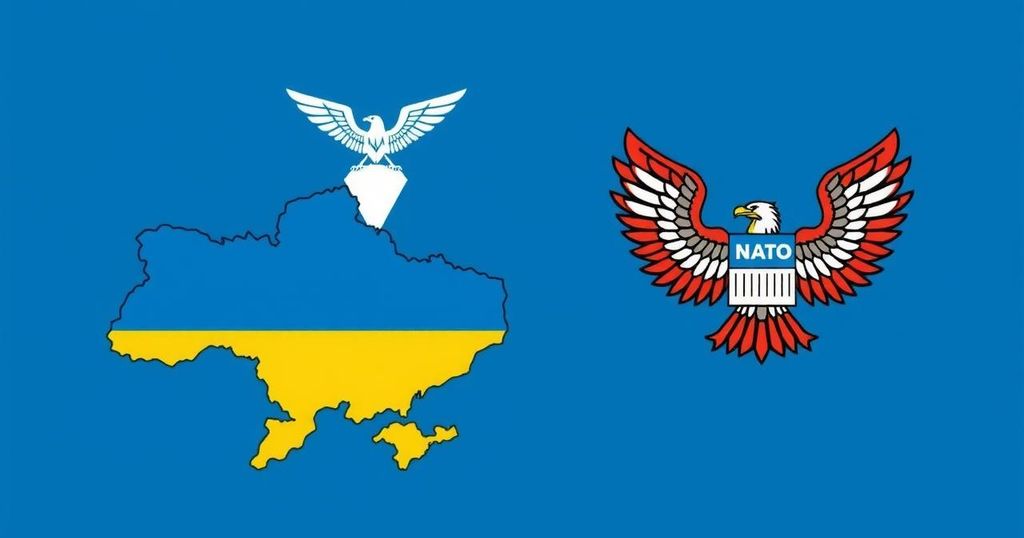U.S. Presidential Election’s Impact on NATO and Ukraine Support

The upcoming U.S. presidential election is influencing NATO discussions on Ukraine, with concerns that aid may decline if Donald Trump wins. NATO officials emphasize the need for European nations to enhance their military contributions as the U.S. may withdraw support. Russia continues to gain advantages on the battlefield, aided by external powers, prompting NATO to take a more assertive role in training and supplying Ukrainian forces for sustained defense efforts.
The recent meeting of NATO defense ministers has been overshadowed by the impending U.S. presidential election, which raises concerns about the potential decline of U.S. support for Ukraine should Donald Trump secure a victory. Defense Secretary Lloyd Austin addressed these concerns, acknowledging that while U.S. bipartisan support for Ukraine continues, future aid levels may diminish. This sentiment was echoed by NATO officials who indicate that the organization is preparing for a future with reduced American involvement in the conflict. Senior NATO figures highlighted the need for Europe to increase its own military contributions and emphasized that NATO must take a leading role in supplying Ukraine. The uncertainty surrounding U.S. political dynamics is prompting efforts to consolidate NATO’s authority in military aid and training for Ukrainian forces. This reassessment is critical, particularly in light of Russia’s ongoing tactical gains on the battlefield and its substantial military capabilities bolstered by assistance from North Korea, Iran, and China. In an alarming context, Russia is reportedly producing munitions at a much higher rate than NATO, outpacing Western allies not only in quantity but also in operational readiness. Secretary Austin has reassured allies of the U.S. commitment to maintaining support for Kyiv as it looks to bolster its defenses against an increasingly aggressive Russian military posture. However, the efficacy of Western aid hinges on collective efforts among NATO nations to ensure that Ukraine’s military capabilities can be sustained regardless of potential shifts in U.S. policy following the election. Ultimately, the viability of international security and stability in the region rests upon unified action by NATO allies.
The discussions among NATO defense chiefs reflect heightened anxieties over the implications of the upcoming U.S. presidential election, particularly regarding aid to Ukraine amidst ongoing military tensions with Russia. Historically, the U.S. has been a significant provider of support to Ukraine, yet a Trump presidency could signal a shift towards reduced assistance. This scenario is juxtaposed against an increasingly hostile and well-supplied Russian military, which is receiving substantial logistical and tactical support from nations like North Korea and Iran. NATO’s response to these challenges is expected to reshape its operational strategy and collaborative defense initiatives moving forward. The situation underscores the urgency for NATO to facilitate greater self-sufficiency among its European members in terms of military production and assistance.
In summary, the nexus of the U.S. presidential election and NATO’s strategic discussions regarding Ukraine has created a complex landscape of military and diplomatic considerations. The potential for diminished U.S. support, particularly under a Trump administration, has prompted NATO to recalibrate its approach to ensuring sustainable aid mechanisms for Ukraine. With Russia’s military capabilities bolstered by external support and prevailing doubts about its long-term resilience, it is paramount for NATO allies to remain unified and proactive in their response to the conflict. This is not merely a matter of international responsibility; it represents a crucial investment in regional and global security.
Original Source: www.cnn.com






